Although I did not like the city, I was looking forward to the second visit to Addis Ababa. The package from home was coming, which meant I would be able to resume blogging.
Before that happened, I had spent a few days at the Polish embassy. Thanks to ambassador's great help I had a comfortable place to stay and a laptop with Internet connection. And thanks to that you might have read about the adventures in Egypt, Sudan and Ethiopia.
On a weekend a friendly journalist, who happened to visit Addis, brought my new toys. Here I would like to thank again him, the ambassador, and the long chain of good people – sometimes unknown to me before – who helped that thing to happen.
Equipped with all that, I embarked on a two-day journey back to Yavello, which reassured me again about the advantages of bicycle over the means of public transport. One and a half week away and I could not wait to hop on the saddle again. What will happen when I eventually come back home?!
The pastor was not at home, but the bike stood exactly in the same place as I had left it. After camping on the verandah again, I set out in the right direction (south) again. My first destination was a town named Mega. Despite its' name, it did not look spectacular in any way. Perhaps only the uphill just before it was mega, bringing me back 400m higher after a long day without a lunch.
I was thinking about the plan for northern Kenya. I had been warned many times about the infamous road from Moyale to Marsabit and further on. The problem of Somali bandits seemed to be solved, but still there was 380km of unpaved road, known for extreme corrugation and hot, inhospitable climate.
As my ambition was to cycle all the overland distance without using motorized transport, I decided to give it a try if three conditions were fulfilled: no security issues, perfect condition of the bike and perfect health.
So, just the next morning I woke up with swollen, sore throat. The rains, rapid altitude changes, lack of cycling for many days and awful diet finally gave an effect. Stuffed with aspirin and sucking on throat pills I had waited until the thick morning fog goes away and eventually started the final cycle to the border, hoping that two days of good, over 100km cycling would cure me.
The landscape of southern Ethiopia was monotonous, huge bush area. Finally I was almost not molested by beggars and the residents of the few villages seemed to be quite friendly. I had also some opportunities for good deeds, as numerous tortoises attempted to cross the road. Each of them I carried off the asphalt, to the side they had tried to reach.
Just a few kilometers before the destination I was caught by a storm. A huge wall of clouds came from the north, giving no chance to hide in the open area. I came to Moyale completely soaked, but quickly found a hotel with a drive-in room for a good price. The compound had rain gutters (perhaps a novelty brought from Kenya) and I was happy to have a proper bath in freshly collected water, while a stone laying in the shower room proved to be a perfect tool to eliminate giant cockroaches crawling out of the drain. A Somalian restaurant made the stay even more pleasant, particularly with the fried liver they served for breakfast. My health improved, the bike was ready with all-terrain Marathon Extreme tyres and everything looked optimistic.
After short waiting I got my exit stamp. Never before I had been so happy to leave a country. The only good thing I could say about Ethiopia was that it had beautiful mountains. Quite poor result for six weeks spent there.
After switching to the wrong side of the road, which Kenyans used to drive on, I rode to the immigration post. The officer was friendly, but the procedure was not. Bastards collected my fingerprints. A remark that in my country they are being taken only from criminals was considered a joke. Apparently this lamentable practice is not limited to the country on the other side of Atlantic anymore.
The policeman at the checkpoint, when I had asked him about security situation, just said “no problem”. All of three conditions had been met and I was starting the journey through asphalt-less land.
At the beginning the road was even pleasant. Consisting mostly of packed sand, it was going down on the beginning, just to level up after some kilometers. The corrugation was not very bad and usually there was a flat path somewhere among the traces of thousands of trucks that had passed there. For these vehicles there are two strategies of dealing with corrugation: either drive slowly and gently, or speed enough to fly over the pits and jump from peak to peak. Perhaps I do not have to mention that the latter option was preferred? The occasional trucks and 4WD cars usually left huge clouds of dust which quickly gave me and the bike a rusty-red color.
Sometimes the roadside paths provided better riding conditions. I was finding my way on sand, among the endless bush, but very often I had to get back on the road after finding a riverbed crossing my way. They were all empty, just like no rain had crossed from Ethiopian side for many days.
The wildlife got more rich. Groups of baboons crossed my way, as well as some tiny animals which resembled deers but moved with long and quick leaps, just like hares. The bush was full of birds' sounds and for some unknown reason the colors on the Kenyan side became more intense and warmer than before the border.
My pessimistic plan assumed a daily distance of 50km and serious problems with getting enough supply of water. On the first day, despite a late start, I managed to cycle 75km before camping and found many pools and ponds. The liquid there looked awful but made me feel comfortable that, equipped with a water filter, I will avoid critical dehydration.
After a breakfast and refilling my bottles in Sololo, the only village that my map showed on the 250km stretch to Marsabit, I followed the road again, slowly turning southwards. The landscape was pretty the same as the day before – endless thorny bush. In the early afternoon I climbed a little mountain and felt first signs of sunburn. My nose, which never manages to heal completely, and which I had burned again the day before, was fortunately shaded as the sun was slightly to the north, behind my back. But my hands, holding the handlebar and being constantly exposed to the merciless sun, started aching.
After getting to the peak I saw a surprise: a village. A quick replenishment of the fluids and I was happily rolling down into new terrain: savannah. The grass, sparsely dotted by single acacia trees, stretched to the horizon. It was no comfortable land, however, as the lovely green carpet lay on a rough, stony floor. The road became more bumpy but until the camping in the middle of the nowhere I did not complain.
The next day was much worse. The road conditions deteriorated. It was usually a collection of ruts filled with loose stones. A nightmare for cycling, as I had to keep the handlebar firmly not to lose balance on the unstable ground. Adding the sun, my hands became a source of pain just after first few hours. Covering them with headscarf helped a bit, but before I reached the uphills to Marsabit, all my upper back was tense and cramped. In another village I filled my stomach with cheap chapati and the water bag with rainwater before camping under acacia tree.
Then the long climb to 1400m began. The road was a deviation actually, as the Chinese-led construction team worked there on a new road which would connect Kenya to Ethiopia with flat new asphalt in a few years. In the early afternoon I reached the town, completely exhausted. Finding a room was not easy, as my appearance – red color and torn trousers – scared most people. Eventually I found a lovely Five Steers Lodge, where the ladies in charge quickly prepared a huge bucket of water for me to recover humane look.
Although remote Marsabit seemed more civilized than most Ethiopian towns, I decided no to stay there. The next day, after big double breakfast, I rolled the easy way down, leaving the old volcano massif behind my back. That area was more densely inhabited and, unfortunately, quite rich in beggars. The water bottles on my bike were drawing special attention, but ordinary requests for money were not unusual. As always, the children were first to beg, but adults also did it.
It was quite disappointing to see that practice in Kenya too, but at least it
could be somehow excused. The
severe drought that
had hit the region mostly finished, but northern Kenya was still not receiving
the usual amount of rain. In the village of Log Logo I had an opportunity to
speak with a man, who greeted me from under a roadside tree.
“This year it rained three times. As you see, there is a lot of greenery
around. During last few years everything was in the same color as the road you
are cycling on”, he explained. “We are just beginning to recover from the famine,
and to be honest we are totally dependent on the aid food and money that we
receive from relatives.”
“Do you have any other source of water than the rains?”, I asked.
“We have boreholes. Made by foreign NGOs, of course. They had to bore 150m
deep before reaching the source. The wind turbine you see there”, he said
pointing to a standstill fan, “pumps it up. Now it is broken. To repair that
someone has to pull out and disassemble 150m of rods, replace the piston and
put it again. A day-long work for a few strong men.”
“Are you trying to save water somehow? Greenhouses for example?”, I continued.
“We have three greenhouses. A pilot program, from abroad. We are being taught to
grow tomatoes there, but before we were only pastoralists. I know how to kill
and roast a lamb or a goat, I know very well what to do with milk, but only a
year before I had no idea what could I do with a tomato. Now we have to learn a
new way of living.”
“How about your cattle then?”
“We lost most of it. I was a proud owner of a herd of eighty goats, and now I
have only seven. This is not enough to feed my family, not to mention any
business. But there are people who had had over hundred cows and lost them
all.”
He also warned me about wild animals, lions in particular, and discouraged from camping at the river I would soon encounter. I left the village after a quick dinner, just to find myself on a huge area of packed sand. The road was perhaps the least used part of it, as hundreds of alternative tracks marked the terrain. I enjoyed the sailing on the sand, finally on some flat area. The fun finished at the bridge over the mud-carrying river. After that the stones reappeared again. The darkness forced me to camp a few kilometers away. There were neither lions nor other wild animals, except for the huge amount of crawling bugs. The amount of insects that appear in Kenya is unbelievable. Every night some bugs were digging under the tent, while others inspected my baggage thoroughly, and the usual mosquitoes tried their luck as well.
In the morning I arrived to Laisamis, one of the last settlements before the asphalt road, and entered Sun View Hotel in search of breakfast. The owner, together with her sister, welcomed me warmly. Once again I realized that since I had crossed the border the people started speaking English and became much more friendly.
The sister, who lived in Mombasa, was visiting her family together with her children. She called her oldest son, who happened to be Michael. We spoke for a while and soon he invited me for a picnic and his mother offered a place to stay overnight.
I was hesitating, as I wanted to be finished with the awful road as soon as possible. They warned me about recent bandits activity in the first part of the asphalt road, but also said that the last few weeks had been quiet.
The picnic, which celebrated winning of a local football tournament, was a great opportunity to meet young people. Mzungu was of course the main attraction, especially for the kids, but Michael reprimanded them often to let me breathe. Another football match followed soon, finishing just before a huge downpour. I must admit that these youth impressed me with their devotion to the sport: in the tiny town they have a local league of a few teams and play full-time matches on regular basis.
Coming back in the rain I got totally soaked. Mostly due to failure of my tyres. The area was overgrown with small, innocently looking plant, equipped with tiny, hard and long thorns. They just ignored the protective layers of my tyres and punctured them with ease. That evening I would put six new patches, just to realize in the morning that my front tyre is flat again.
Michael's family hosted me with hot milk tea and prepared hot water for shower. I reciprocated by buying a supper for both of us and then we went to a local party at school ground. However, I said goodnight quickly and tried to repair my wasted tyres.
In the morning Michael went out to search for a car that would carry me to Isiolo. The last evening, during the supper, we learned that three days ago the bandits reappeared again and tried to stop a car. They shot at the escaping vehicle, fortunately missing the people inside. Cycling that stretch of road would be plainly stupid.
So, after about 18 thousand kilometers I had to give up and pack my bike on a car. Although it was the wise thing to do, I regretted it, as I would not be able to say that I cycled all the way overland. The 140km distance to Isiolo I travelled in an NGO's 4WD car, which happened to be going there and was being driven by Michael's relative.

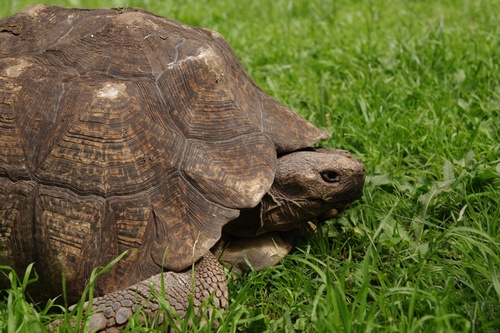
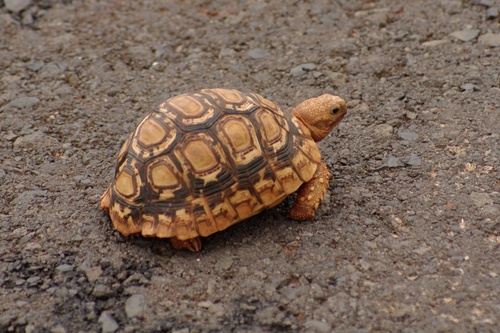
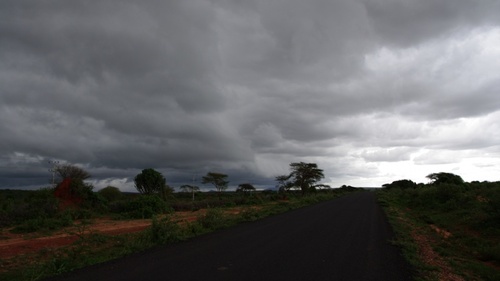
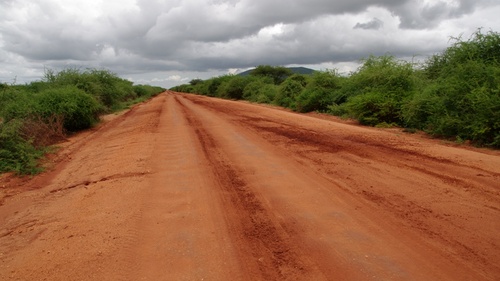
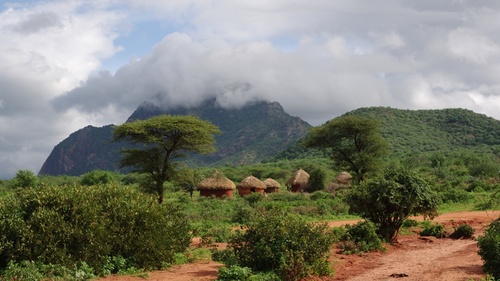
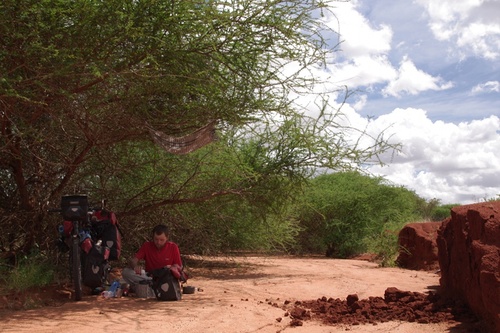
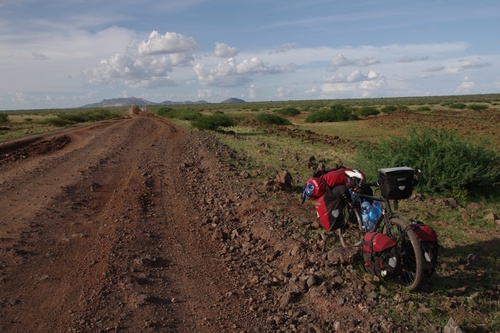
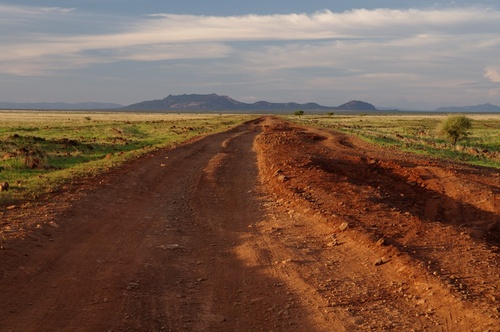
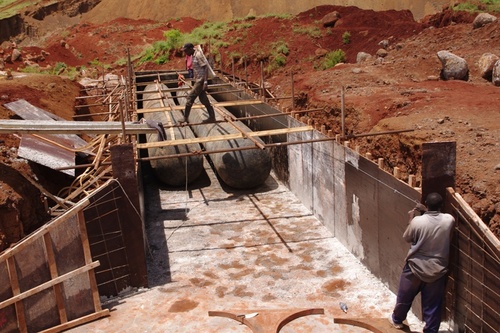
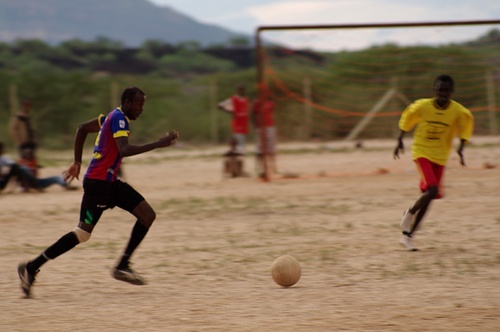
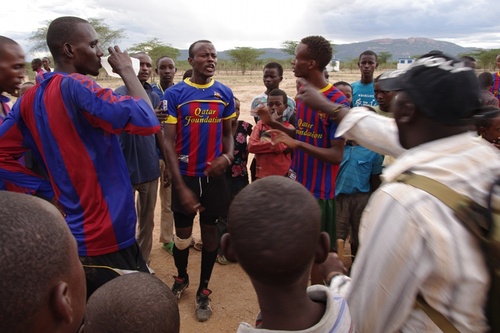
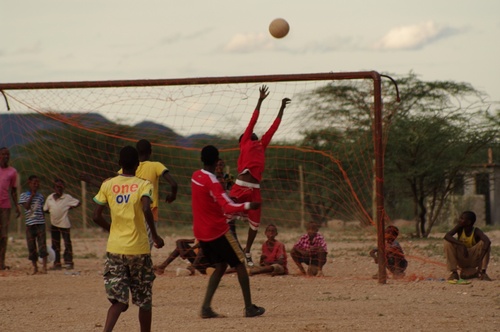
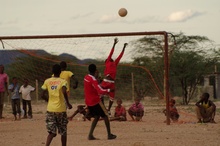
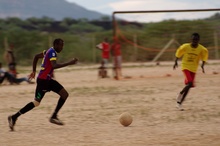
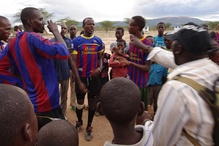
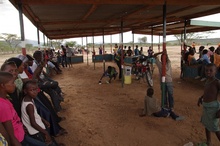
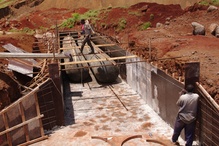
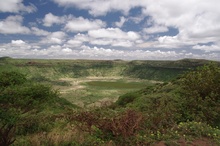
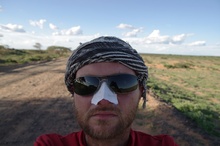
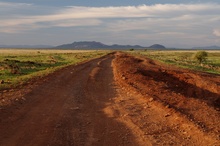
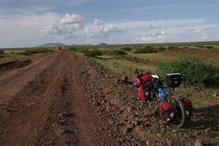
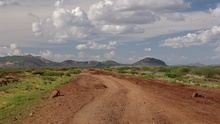
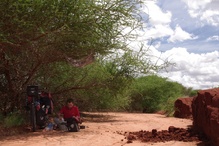
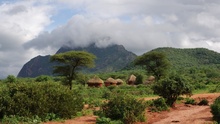
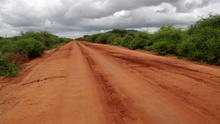
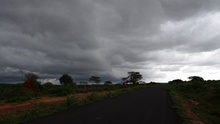
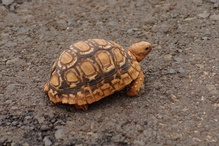
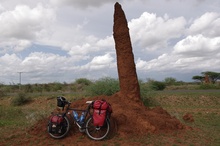
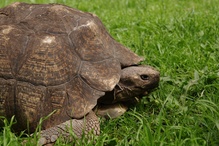
Comments:
Vito
mama
marta i waldek
hdk
kibice czekają na kolejne wieści !
Kasia C
Wilk
Ostatnio wyrabiałem nowy paszport i jest to niestety obowiązkowa procedura.